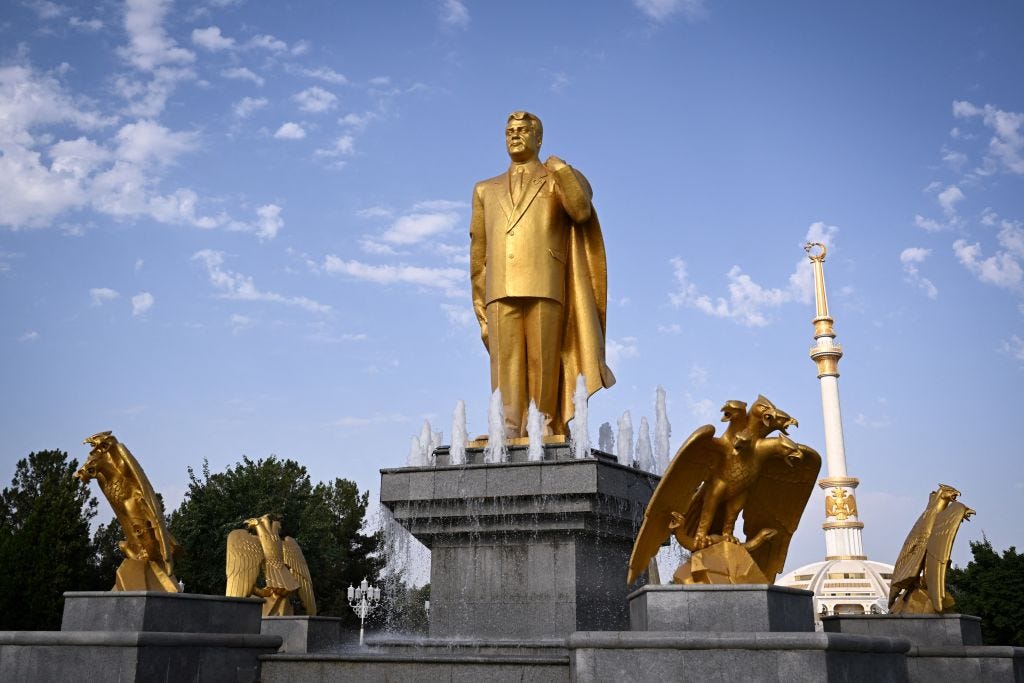Plan D
The energy markets await a momentous decision from China.
“It's easy to make good decisions when there are no bad options.” – Robert Half
As far as cults of personality go, it is difficult to top Stalin or Mao, but Saparmurat Niyazov sure gave them a good run. The late leader of Turkmenistan saturated the country with his own image, brutally enforced random laws that were based mostly on whims, and renamed several months of the calendar after himself and members of his family. He even changed his official name to Turkmenbashi, which means “Father of the Turkmen.” The situation was so bizarre that 60 Minutes aired an entire segment in 2003 exposing the goings on inside a country that few in the US knew even existed:
“When Soviet rule collapsed in 1991, Turkmenistan was left on its own, with no real government, and no national identity. Turkmenbashi filled that void. He built a nation and a culture based on him.
The golden likeness of the former communist party boss-turned-dictator is in the center of the capitol, always rotating to face the sun. His picture is on the airplane that brings you to the main port town called Turkmenbashi. It watches over workers in the field, over children in school, over drivers on the road. He's also on the money, and he's even on the national vodka.
His face is everywhere, and you can't walk a block without seeing either a statue or photo of him.”
When Niyazov died in December of 2006, he was replaced by President Gurbanguly Berdimuhamedov, who continues to rule in his mold, albeit with fewer eccentricities. The country is widely considered one of the most oppressive authoritarian states on the planet, receiving a paltry score of 2 out of 100 in Freedom House’s latest appraisal of the political rights and civil liberties granted its citizens. Cuba earns a score of 12, while Venezuela checks in at 15.
How a sparsely populated country bordering the Caspian Sea is ruled would not normally be of much interest to those in the West, but Turkmenistan is blessed with enormous energy resources. The Galkynysh natural gas field is estimated to be the second largest in the world, behind only the South Pars/North Dome field jointly exploited by Qatar and Iran. According to the most recent Statistical Review of World Energy, Turkmenistan ranks fourth in global proven gas reserves, besting even the US.
Over the past several years, Turkmenistan has been a key player in some of the most important behind-the-scenes jockeying in the great global energy game. At stake is how China will source a material share of its natural gas needs for decades to come. The resolution will have substantial ramifications for many countries, including those in Western Europe. It’s a story of geopolitical intrigue, hardball negotiations, and a potential rewiring of critical global energy arteries. Let’s unwind the particulars.



